University C# Programming Assignment 4: Class Content and Methods
VerifiedAdded on 2022/12/19
|6
|1440
|1
Homework Assignment
AI Summary
This C# assignment solution addresses key concepts in object-oriented programming, focusing on class design and method implementation. The solution encompasses four problems: Problem 1 demonstrates pass-by-value, default parameters, and named parameters, as well as the use of out parameters in arithmetic operations. Problem 2 illustrates the use of ref parameters for modifying values passed to methods, including incrementing values and swapping variables. Problem 3 explores the params keyword, showcasing how to handle a variable number of arguments in a method. Problem 4 defines a Circle class with attributes (radius), mutators (SetRadius), accessors (GetRadius), and a method to calculate the area, demonstrating class instantiation and object usage. The solution includes detailed code examples, documentation, and outputs for each problem, providing a comprehensive understanding of the core concepts. The assignment adheres to specified coding conventions, including Pascal/Camel casing for types and variables, and emphasizes clear code indentation and documentation.
1 out of 6
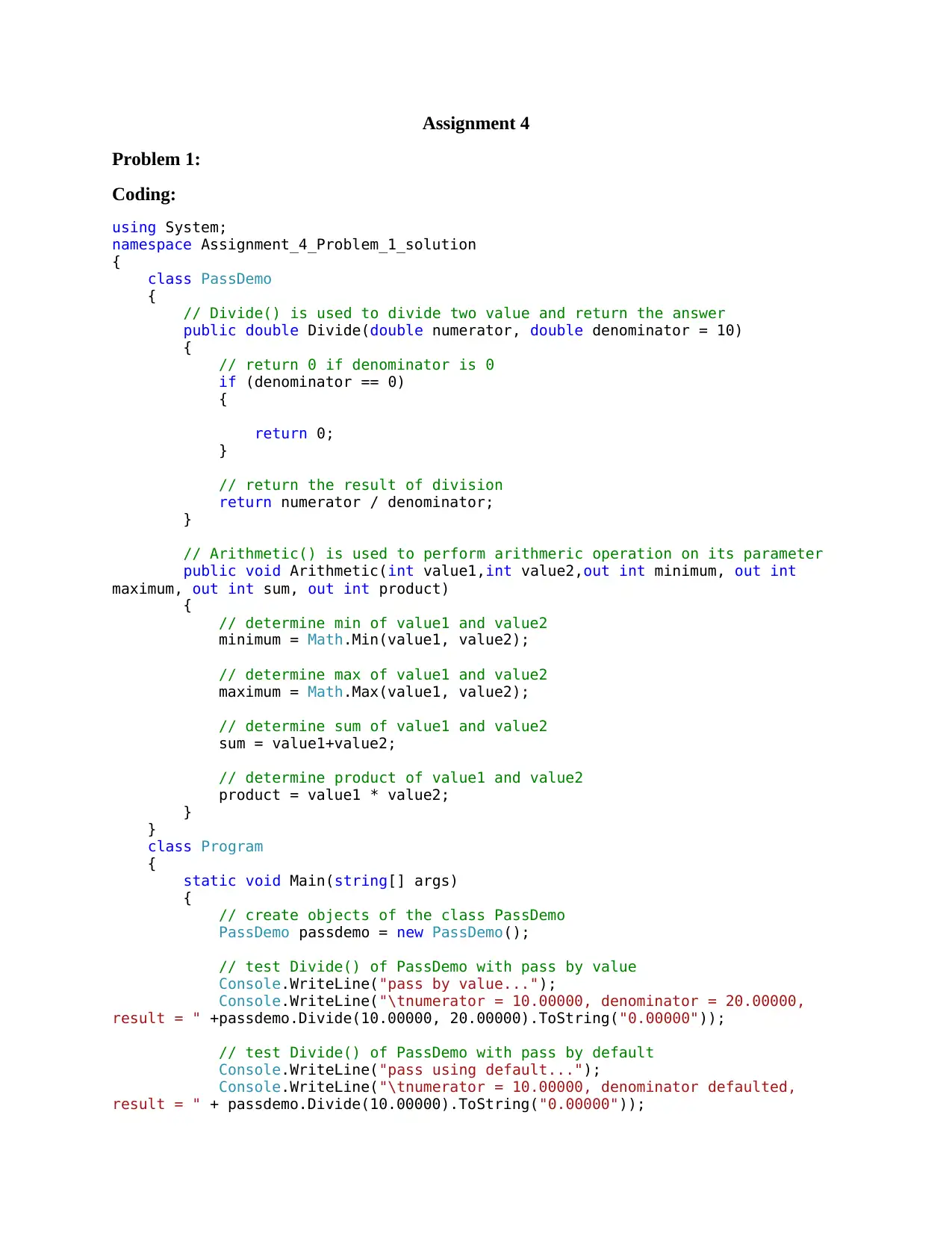
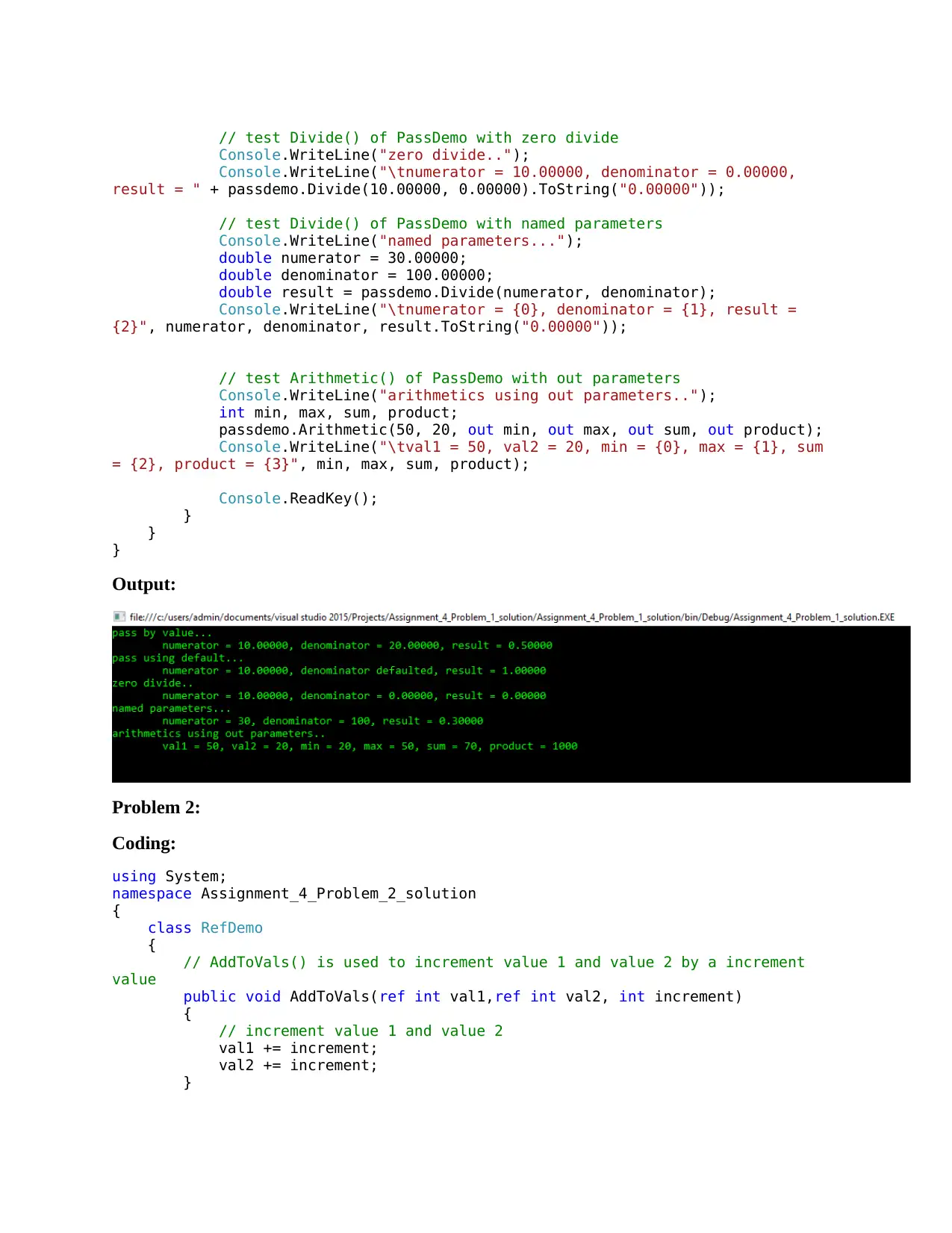
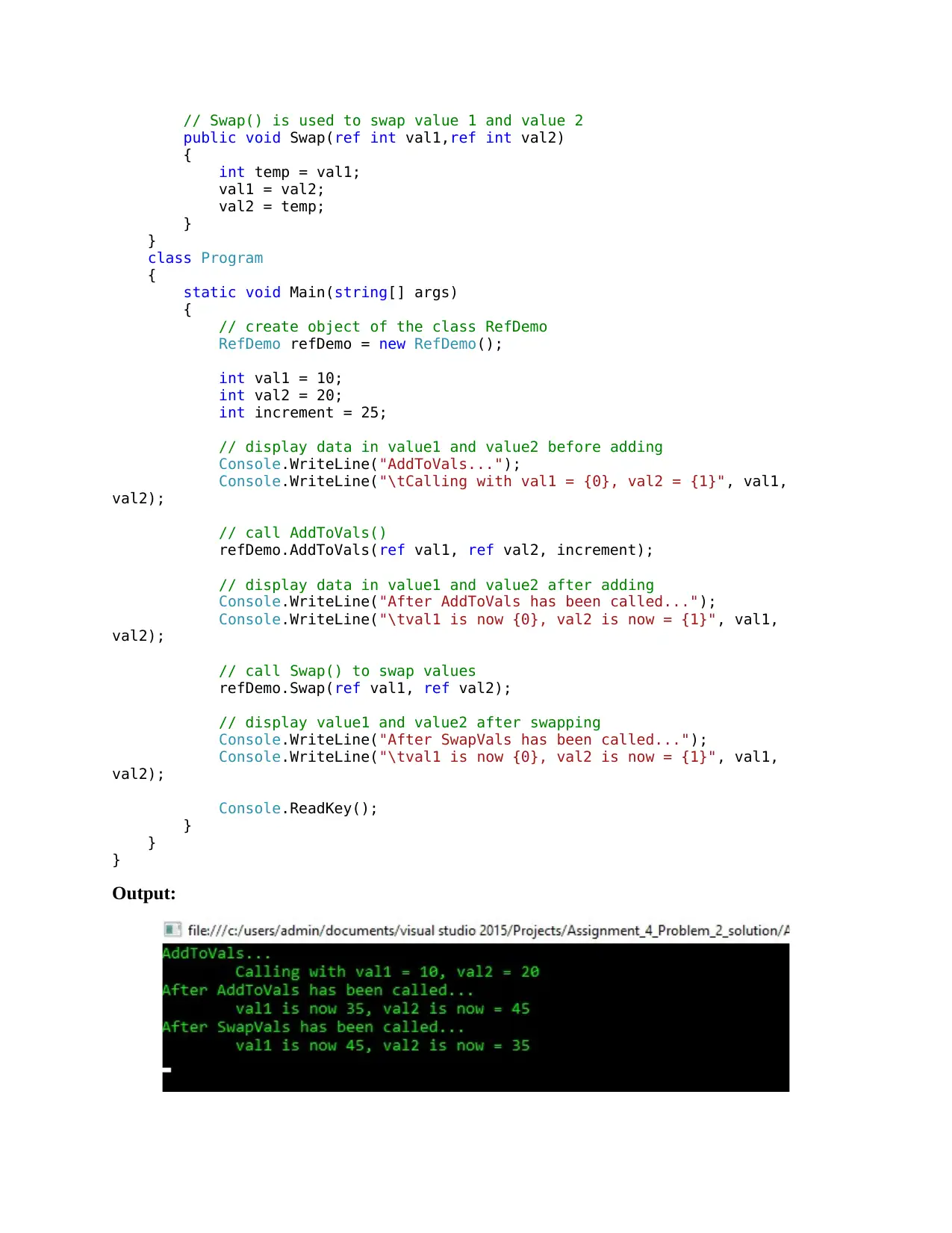

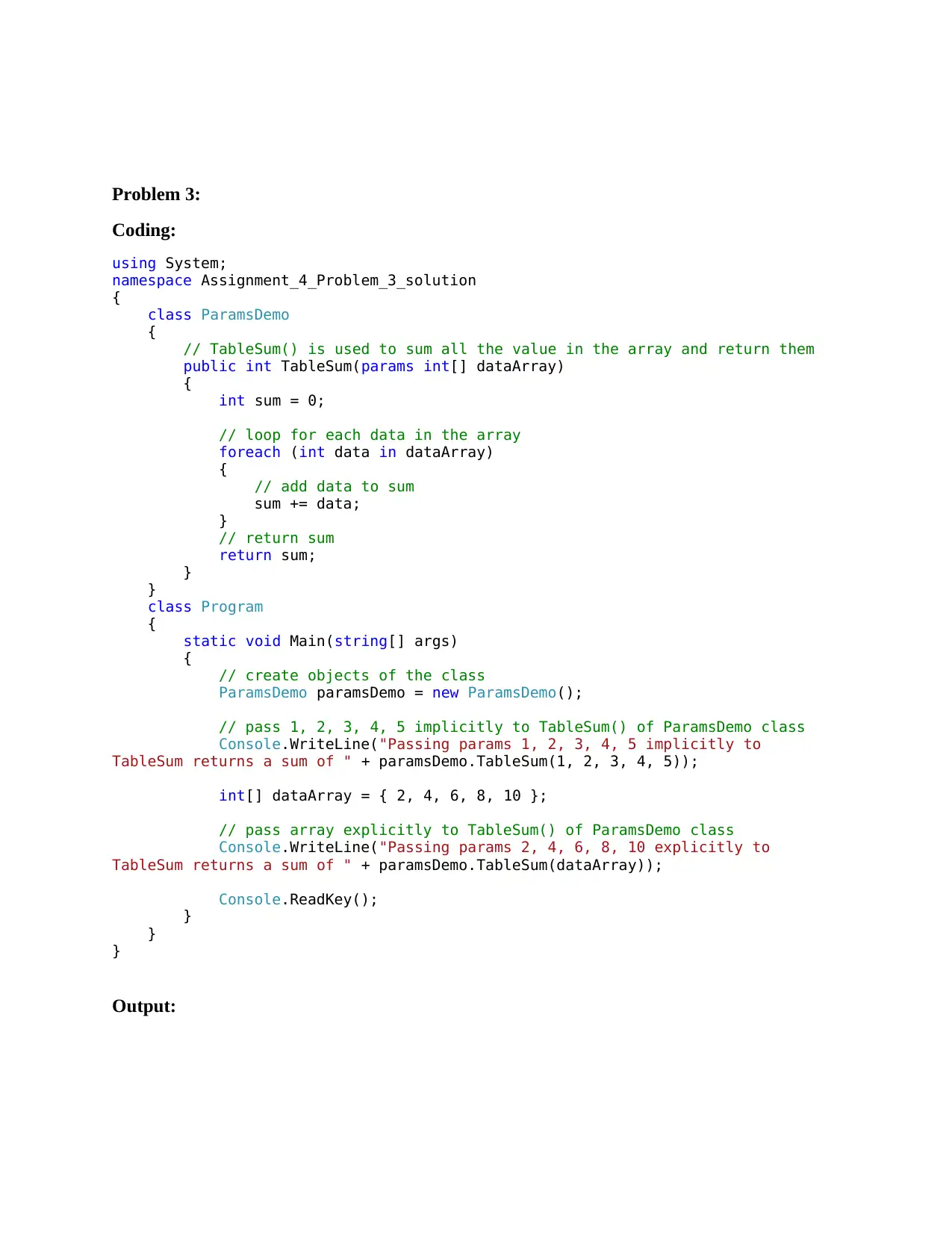
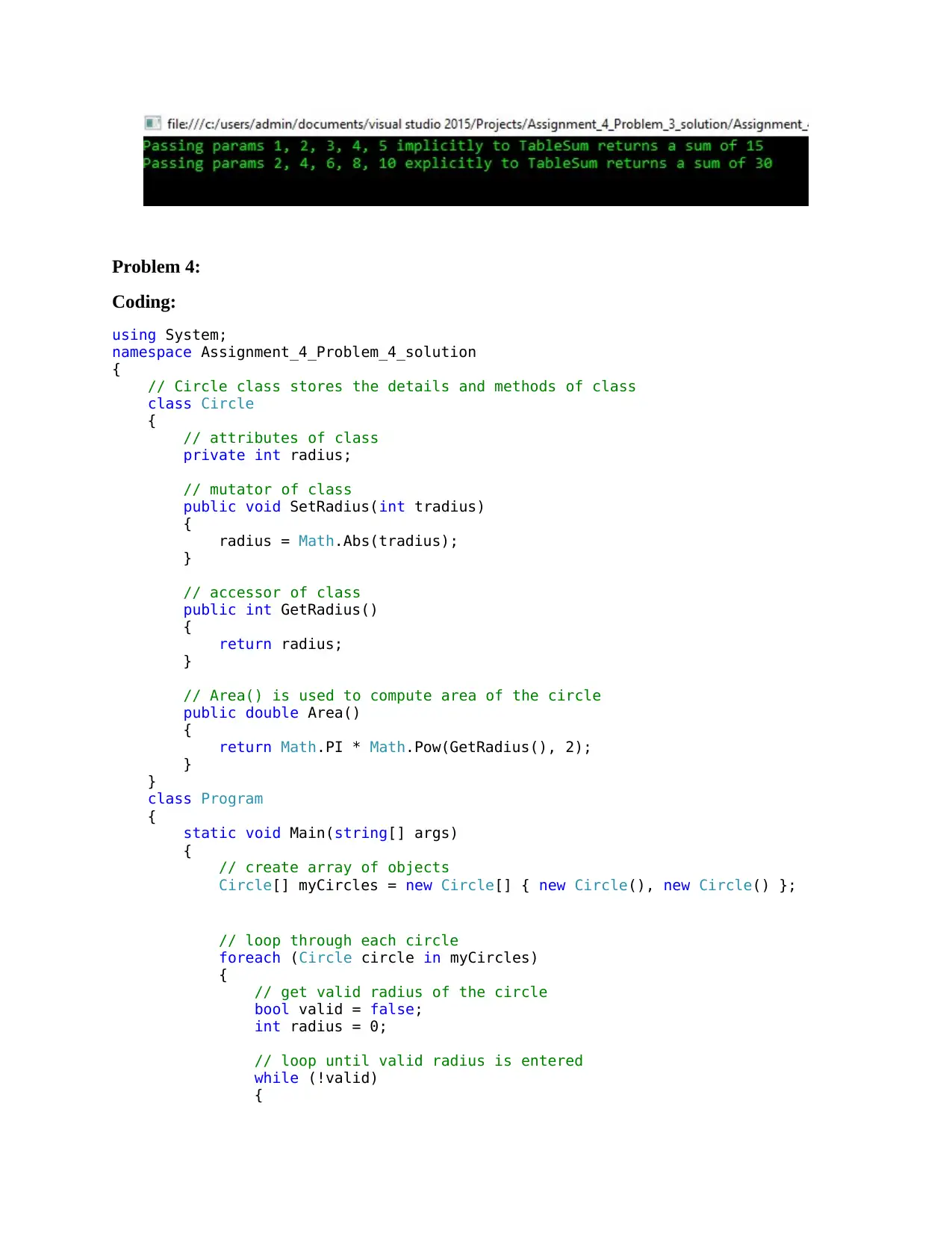
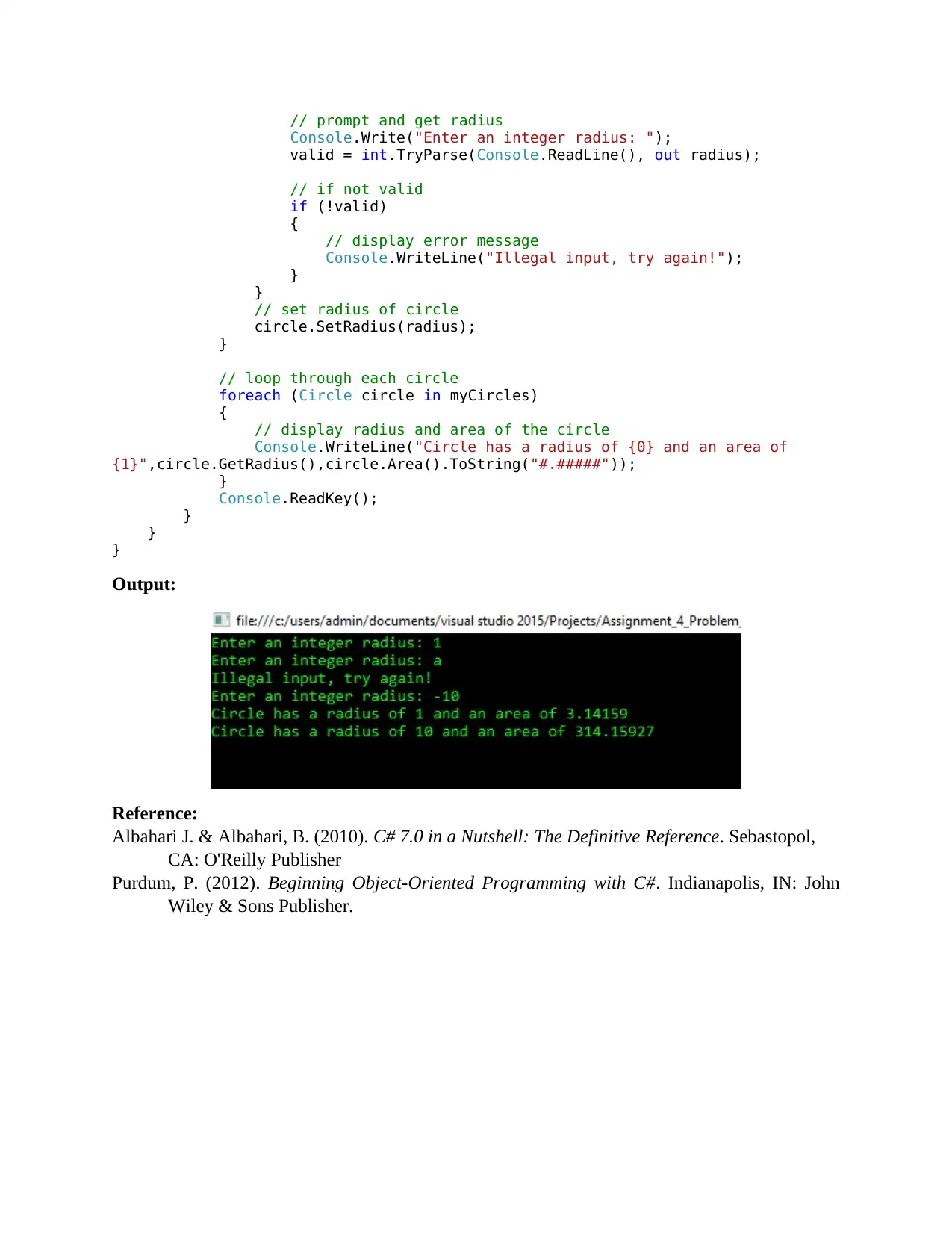

![[object Object]](/_next/static/media/star-bottom.7253800d.svg)